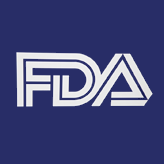Blinatumomab Gets Full FDA Approval for B-Cell Precursor ALL
The FDA has expanded the approval of blinatumomab (Blincyto) for the treatment of relapsed or refractory B-cell precursor acute lymphoblastic leukemia in adults and children.
The approval expands the indication to include Philadelphia chromosome–positive patients

The US Food and Drug Administration (FDA) has granted full approval to blinatumomab (Blincyto) for the treatment of relapsed or refractory B-cell precursor acute lymphoblastic leukemia (ALL) in adults and children, and expanded its indication to include Philadelphia chromosome–positive patients.
“For researchers and physicians, overall survival is the primary goal of treatment and the gold standard of outcomes, demonstrating a clear value to patients,” said study investigator Anthony Stein, MD, co-director of the Gehr Family Center for Leukemia Research, City of Hope, Duarte, California, in a press release. “Data from the TOWER study support the use of this single-agent bispecific T-cell engager immunotherapy, the first to demonstrate superior overall survival in patients with Philadelphia chromosome–negative relapsed or refractory B-cell precursor ALL, offering a much needed alternative with significantly improved outcomes over standard-of-care chemotherapy.”
The phase III TOWER study was a randomized, open-label study that included 405 adult patients with Philadelphia chromosome–negative relapsed or refractory B-cell precursor ALL. Patients in the study were randomized 2:1 to receive blinatumomab (n = 271) or investigator’s choice of standard-of-care chemotherapy (n = 134).
The study was ended early based on the improved efficacy of blinatumomab, which demonstrated an improvement in median overall survival over standard-of-care chemotherapy (7.7 months vs 4 months; hazard ratio for death, 0.71; P = .012). The results were published earlier this year in the New England Journal of Medicine.
The FDA’s expanded indication is based on data from the phase II ALCANTARA study, a single-arm, open-label study that investigated blinatumomab in 45 adult patients with Philadelphia chromosome–positive relapsed or refractory B-cell precursor ALL. Results of the study, one of the largest conducted in this patient population, were published in the Journal of Clinical Oncology.
Efficacy was based on the complete remission rate, duration of complete remission, and proportion of patients with a minimal residual disease–negative complete remission or complete remission with partial hematologic recovery within 2 cycles. More than one-third (36%) of patients achieved the primary study endpoint, including 4 of 10 patients with T315I mutations. Fourteen of 16 patients achieving the primary endpoint achieved a complete response. Among those patients who responded, 47% had three or more prior tyrosine kinase inhibitors and 35% had prior ponatinib.
The most common adverse events (≥ 10%) in the blinatumomab arm were cough, cytokine release syndrome, decreased immunoglobulins, infusion-related reaction, pyrexia, and tremor. These occurred at rates of 5% or higher compared with chemotherapy.
The FDA has included a boxed warning for blinatumomab due to the risk of neurologic toxicities and cytokine release syndrome. In the United States, the drug is also under a risk evaluation and mitigation strategy program.